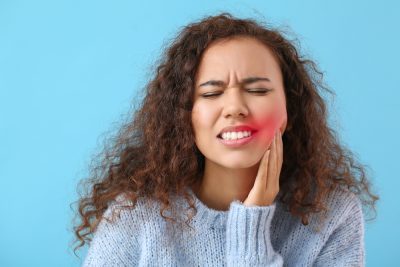That sharp pain when teeth accidentally clamp down on your tongue is a sensation most people know all too well. While occasional tongue biting during meals is a common annoyance, frequent or recurring incidents might signal something more significant than simple clumsiness. From neurological conditions to dental issues, the reasons behind chronic tongue biting are diverse and sometimes concerning. Understanding when this painful habit warrants medical attention could help identify underlying health problems before they become more serious.
The anatomy behind accidental tongue bites
The human tongue is remarkably mobile—a muscular organ capable of precise movements necessary for speech, swallowing, and eating. This mobility, however, comes with a price: vulnerability. The tongue operates within the confined space of the mouth, surrounded by teeth designed for cutting and crushing food. Under normal circumstances, neurological controls coordinate tongue movements with jaw function, keeping the tongue safely away from teeth during chewing and speaking.
When these coordinated movements falter, the result is often a painful collision between teeth and tongue tissue. The tongue’s rich blood supply ensures that even minor bites can produce dramatic bleeding, making these incidents seem more severe than they typically are. The tongue’s abundant nerve endings also explain why these injuries cause disproportionate pain compared to their actual severity.
The anterior third of the tongue—the part most commonly bitten—contains taste buds that detect sweet, salty, and umami flavors. The posterior regions detect bitter tastes and help trigger the swallowing reflex. This distribution means that bites to different areas of the tongue can produce varying sensations and healing times.
The tongue’s remarkable healing abilities stem from its extraordinary blood supply. Most minor tongue bites heal within 3-7 days without complication, though the discomfort during healing can be considerable. This rapid healing often masks underlying issues that might be causing repeated biting episodes.
Sleep disorders and nighttime tongue biting
One of the most common yet overlooked causes of chronic tongue biting occurs during sleep. Nocturnal tongue biting differs significantly from daytime incidents and often indicates specific sleep disorders that deserve attention.
Sleep apnea, a condition characterized by repeated breathing interruptions during sleep, creates a pattern where the airway momentarily collapses. As the brain registers decreasing oxygen levels, it often triggers gasping reflexes that can cause the jaw to clamp suddenly, catching the tongue between the teeth. People with undiagnosed sleep apnea may notice morning tongue soreness without realizing the connection to their breathing issues.
Another sleep-related cause involves sleep bruxism—unconscious teeth grinding or clenching during sleep. This condition affects approximately 8% of adults and places the tongue at higher risk for night-time injury. The forceful jaw movements during bruxism episodes can trap the tongue between grinding molars, leading to significant tissue damage.
Some parasomnias—unusual behaviors during sleep—can also contribute to tongue biting. Sleep-related eating disorder, where people consume food while essentially asleep, increases the risk of tongue injury due to impaired coordination and awareness during these episodes.
The connection between these sleep disorders and tongue biting creates a diagnostic opportunity. Patients reporting frequent morning tongue soreness, especially with other symptoms like daytime fatigue, morning headaches, or witnessed breathing pauses during sleep, should discuss these patterns with healthcare providers.
Neurological causes of repeated tongue biting
Perhaps the most medically significant causes of tongue biting relate to neurological conditions. The tongue’s movement is controlled by multiple cranial nerves, including the hypoglossal nerve, which can be affected by various neurological disorders.
Seizure disorders represent the most concerning neurological cause of tongue biting. During tonic-clonic seizures (formerly called grand mal seizures), sudden, uncontrolled muscle contractions often include the jaw muscles, which can forcefully close on the tongue. The location of tongue bites following seizures tends to be distinctive—typically on the sides of the tongue rather than the tip—which helps medical professionals differentiate seizure-related injuries from accidental bites.
Importantly, tongue biting during seizures typically occurs at the onset of the episode, often while the person is losing consciousness. This timing means the individual rarely remembers the actual biting incident, instead discovering the injury upon regaining awareness. If someone experiences unexplained tongue injuries, especially with other symptoms like memory gaps, confusion, or witnessed unusual movements, prompt neurological evaluation is essential.
Movement disorders like tardive dyskinesia—often associated with long-term use of certain psychiatric medications—can cause involuntary tongue movements that place it in harm’s way. These repetitive, uncontrolled movements increase the likelihood of the tongue being caught between the teeth during normal activities like eating or speaking.
Multiple sclerosis, which affects the myelin sheath protecting nerve fibers, can impair the precise coordination between tongue and jaw movements. As the disease progresses, some patients experience increasing difficulties with oral coordination, leading to more frequent tongue biting during routine activities.
Parkinson’s disease similarly affects motor control throughout the body, including the intricate movements of the mouth and tongue. The characteristic tremors and rigidity can disrupt the timing of chewing movements, increasing bite incidents, especially during meals.
Dental and jaw alignment issues
The arrangement of teeth and jaw position plays a crucial role in tongue protection. When these structures fall outside normal alignment, the risk of tongue biting increases substantially.
Malocclusion—improper alignment between the upper and lower dental arches—creates abnormal spaces where the tongue may become trapped during speech or eating. Specific types of malocclusion pose particular risks:
- Overbite: When upper front teeth significantly overlap lower teeth, the tongue may get caught during forward movements.
- Underbite: Lower teeth positioned ahead of upper teeth create unusual spaces where the tongue can become trapped.
- Crossbite: When upper teeth sit inside lower teeth rather than outside them, the normal protective architecture of the mouth is compromised.
- Open bite: Spaces between opposing teeth when the mouth is closed create gaps where the tongue can be pinched.
Temporomandibular joint disorders (TMJ) affect jaw movement and positioning, potentially leading to unpredictable jaw motions that increase tongue injury risk. The irregular movements and sometimes sudden jaw shifts characteristic of TMJ dysfunction can catch the tongue between teeth unexpectedly.
Dental prosthetics, including dentures, bridges, and newly placed crowns, can temporarily increase tongue biting until adaptation occurs. The brain’s spatial map of the mouth requires updating when dental work changes the oral environment, and during this adjustment period, tongue positioning errors are common.
Wisdom teeth eruption or extraction can temporarily alter the oral environment, creating unfamiliar edges or spaces that increase tongue injury risk during the healing phase.
Medication side effects and tongue biting
Several common medications can inadvertently increase the risk of tongue biting through various mechanisms affecting oral motor control or tongue positioning.
Antipsychotic medications, particularly first-generation options, sometimes cause extrapyramidal symptoms including tongue protrusion or unusual movements (dyskinesia). These movement disorders place the tongue in vulnerable positions, increasing bite incidents.
Certain anticonvulsant medications paradoxically cause tongue movement issues in some patients. While these medications control the seizures that might otherwise cause severe tongue biting, their side effects sometimes include milder coordination issues affecting the tongue.
Sedatives and muscle relaxants reduce the precise control needed to keep the tongue properly positioned during eating and speaking. Even moderate doses can impair the fine motor coordination required for safe tongue positioning.
Medications causing dry mouth (xerostomia) indirectly contribute to tongue biting by altering the tongue’s normal lubrication. A dry tongue moves differently and sometimes less predictably than a properly moistened one, potentially placing it in harm’s way during routine oral functions.
Stimulant medications used for attention deficit hyperactivity disorder occasionally cause increased jaw tension or subtle grinding behaviors that raise the risk of tongue injuries, especially during peak medication effects.
Psychological factors in chronic tongue biting
The mind-body connection plays a significant role in some cases of chronic tongue biting, with psychological factors contributing through several mechanisms.
Anxiety disorders often manifest physically through increased muscle tension, including jaw clenching. This tension alters the normal relaxed state of oral structures, creating a higher-risk environment for the tongue. Additionally, anxiety can lead to unconscious behaviors like tongue chewing or positioning the tongue between teeth during concentration.
Stress-related behaviors include clenching and grinding teeth (awake bruxism) that many people don’t recognize they’re doing. Unlike sleep bruxism, awake grinding typically occurs during intense concentration or frustration and places the tongue at immediate risk.
Body-focused repetitive behaviors (BFRBs) sometimes include tongue biting as a specific manifestation. Similar to nail biting or hair pulling, some individuals develop habitual tongue chewing or positioning that causes repeated injuries. These behaviors often increase during periods of stress or boredom and may provide temporary stress relief despite their harmful nature.
Obsessive-compulsive disorder occasionally presents with oral rituals that include tongue positioning between teeth or repetitive tongue movements that increase injury risk. These compulsions follow the typical OCD pattern of providing temporary anxiety relief while causing longer-term problems.
When to seek medical attention for tongue biting
While occasional tongue biting rarely requires medical intervention, certain patterns and circumstances warrant professional evaluation:
- Frequency: Biting your tongue more than once weekly without obvious explanations like new dental work suggests an underlying issue requiring assessment.
- Timing patterns: Discovering tongue injuries upon waking consistently points toward sleep disorders requiring evaluation by a sleep specialist.
- Severity: Deep lacerations, especially those not healing within one week, should be examined by a healthcare provider.
- Associated symptoms: Tongue biting accompanied by confusion, memory gaps, unusual fatigue, morning headaches, or witnessed unusual movements during sleep demands prompt medical attention.
- Location patterns: Injuries consistently appearing on the sides of the tongue rather than the tip suggest possible seizure activity and warrant neurological assessment.
The appropriate specialist depends on associated symptoms. Dentists address malocclusion and TMJ issues, while neurologists evaluate possible seizure disorders. Sleep medicine specialists handle sleep-related breathing disorders, and psychiatrists might help with medication-induced movement disorders or psychological contributors.
Prevention and management approaches
Managing chronic tongue biting requires addressing the underlying cause while implementing practical strategies to reduce injury risk:
For sleep-related tongue biting, sleep position adjustments help some individuals. Side sleeping rather than back sleeping reduces the likelihood of tongue relaxation into vulnerable positions. For confirmed sleep apnea, continuous positive airway pressure (CPAP) therapy not only improves breathing but often eliminates related tongue biting.
Dental interventions include custom-fitted night guards that create a physical barrier between upper and lower teeth during sleep. For malocclusion-related biting, orthodontic treatment addresses the fundamental alignment issues causing repeated injuries.
Medication adjustments require professional supervision but can significantly reduce tongue biting when medication side effects are the primary cause. Never adjust prescription medications without healthcare provider guidance.
Stress management techniques benefit those whose tongue biting relates to anxiety or tension. Mindfulness practices help develop awareness of jaw clenching and tongue positioning during stressful situations. Progressive muscle relaxation specifically targeting the jaw muscles can reduce unconscious tension contributing to tongue injuries.
Habit reversal training works effectively for those with body-focused repetitive behaviors involving the tongue. This behavioral approach increases awareness of the behavior while developing competing responses that keep the tongue in safer positions.
The healing process for tongue injuries
Despite the tongue’s excellent healing abilities, proper care accelerates recovery and prevents complications:
Immediate care after biting your tongue includes gentle pressure to control bleeding, followed by cold applications to reduce swelling. Avoiding spicy, acidic, or rough-textured foods prevents additional irritation to the injured tissue.
Saltwater rinses (one-half teaspoon salt in eight ounces warm water) create a cleaning solution that reduces bacterial contamination without harsh chemicals that might delay healing. Rinsing after meals removes food particles that could irritate the wound.
Over-the-counter pain relievers help manage discomfort during healing, with acetaminophen typically preferred over NSAIDs for oral injuries due to reduced bleeding risk.
Signs of infection requiring medical attention include increasing pain after initial improvement, pus formation, spreading redness, fever, or swollen lymph nodes under the jaw. Tongue infections potentially spread to deeper neck structures, making prompt treatment essential.
Most minor tongue injuries heal completely within one week without scarring. However, repeated injuries to the same area can eventually cause tissue changes, including the formation of scalloped edges where the tongue repeatedly presses against teeth.
Understanding the connection between tongue and overall health
The tongue serves as a visible indicator of various health conditions, making changes in its appearance or function potentially significant. Beyond biting incidents, paying attention to tongue health offers valuable insights into overall wellbeing.
Traditional medicine systems have long recognized tongue assessment as a diagnostic tool. Modern medicine similarly acknowledges that the tongue’s appearance—including color, texture, and coating—provides clues about nutritional status, hydration, and certain systemic conditions.
Regular tongue assessment during dental check-ups allows for early identification of concerning changes. Self-examination between professional visits helps track changes that might warrant earlier evaluation.
The relationship between oral health and systemic conditions continues gaining recognition in medical research. Conditions ranging from diabetes to cardiovascular disease show connections to oral health status, making proper tongue care part of overall health maintenance.
Understanding the various causes of tongue biting helps distinguish between annoying accidents and symptoms of underlying conditions requiring attention. By recognizing patterns that suggest specific causes, individuals can seek appropriate care rather than dismissing these painful incidents as simple clumsiness or bad luck.
With proper attention to tongue biting patterns and appropriate intervention for underlying causes, most people can reduce or eliminate chronic tongue injuries. This attention not only alleviates the immediate pain of biting incidents but potentially identifies important health issues requiring treatment for overall wellbeing.













